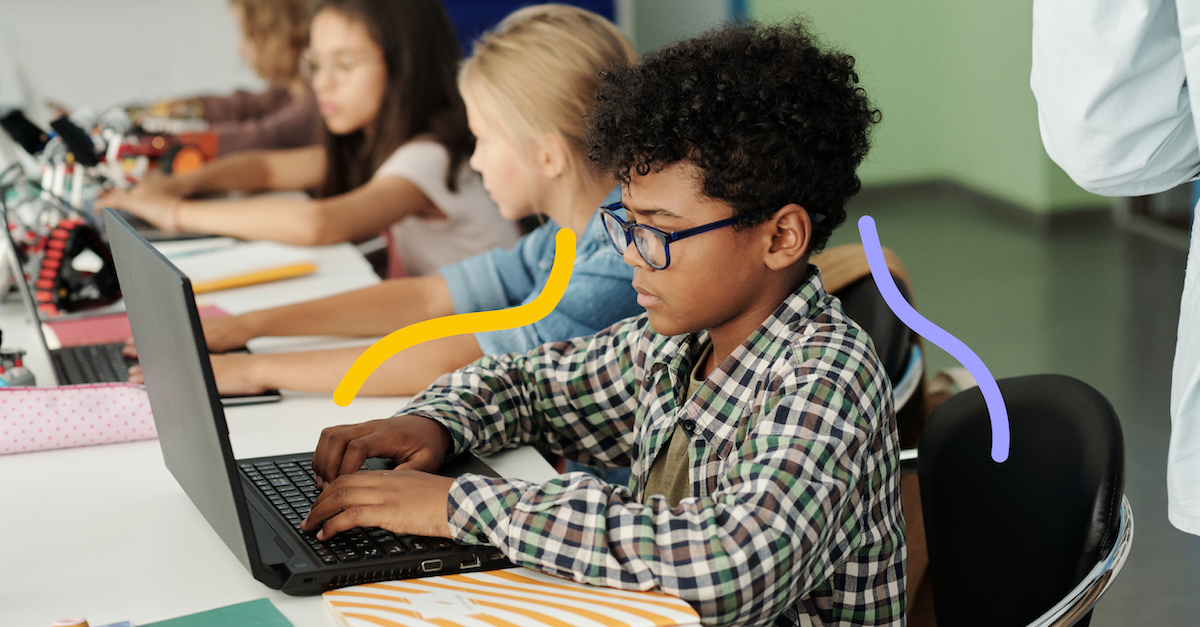Stay up to date.
Stay connected with tips, resources & stories on language access.

Effective communication with people who are either Deaf or hard of hearing (HoH) is crucial in all public service settings. While American Sign Language (ASL) is often considered the primary means of communication with Deaf and HoH individuals, Communication Access Realtime Translation (CART) services are a secondary option to provide additional language access support.
What is CART? Take a closer look at CART and how this could be an essential element to include in your language services offerings.
CART is a type of real-time captioning that can be used as an auxiliary aid when communicating with Deaf and HoH individuals. CART involves a service provider instantly transcribing spoken words into text using tools such as a laptop, notebook computer, or a stenotype machine typically used by court reporters. The transcribed text is then displayed on a monitor in the room or on mobile devices for the Deaf or HoH individual to read.
CART provides a more straightforward path to effectively communicate with Deaf and HoH individuals in written text form; which is a form vastly different than ASL. ASL does have its advantages over CART in healthcare settings since it is the native language of most people who identify with the Deaf community. For example, ASL can be more personable and do a better job of conveying emotion. Therefore, ASL is best used for certain delicate scenarios, such as when conveying a certain diagnosis or communicating with a terminally ill patient. CART can be used for prolonged meetings, trainings, or when the Deaf or HoH individual needs direct access to complicated jargon.
The Americans with Disabilities Act (ADA) set forth mandates nearly 30 years ago, requiring public entities like healthcare organizations to ensure effective language solutions for Deaf and HoH individuals. In 2012, further action was taken to uphold these mandates by requiring healthcare organizations to provide adequate auxiliary aids to patients to support barrier-free healthcare for all patients. While ASL interpreters are one qualifying option to remain compliant, CART services also fulfill other necessary ADA mandates.
Educational institutions, healthcare organizations, and other public service groups often use CART services. The services can also be valuable during on-the-job training, advisory meetings, or programs where verbatim conversation is vital. For example, a healthcare organization may use CART when hosting a community awareness program to discuss the specifics of staying safe and treatment protocols during a pandemic.
CART can be valuable for certain situations when communicating with Deaf or HoH individuals. The services can be especially valuable when conveying information to a group. CART can even be used during video remote interpreting sessions to caption the presented information.
As noted above, healthcare organizations must remain compliant with ADA regulations, which means they must use appropriate auxiliary aids to support communication. Not remaining compliant by ensuring effective communication with all patients can lead to stiffly enforced fines and penalties. Organizations can ensure they remain compliant by using CART as part of a language solutions plan.
In some cases, having the conversation conveyed in written form can be valuable to avoid issues with miscommunication or to provide a written transcript of the interpreting scenario. For example, if a care provider needs to explain a specific treatment plan or protocol, seeing the information in text can be helpful. CART also allows for the entire conversation to be recorded and sent to the patient for later reference.
GLOBO provides a full collection of language access solutions to keep you communicating with everyone equally. From CART to video remote interpreting, we offer solutions that keep you connected in all the best ways. Reach out to discuss how GLOBO's language support could enhance your healthcare interactions.